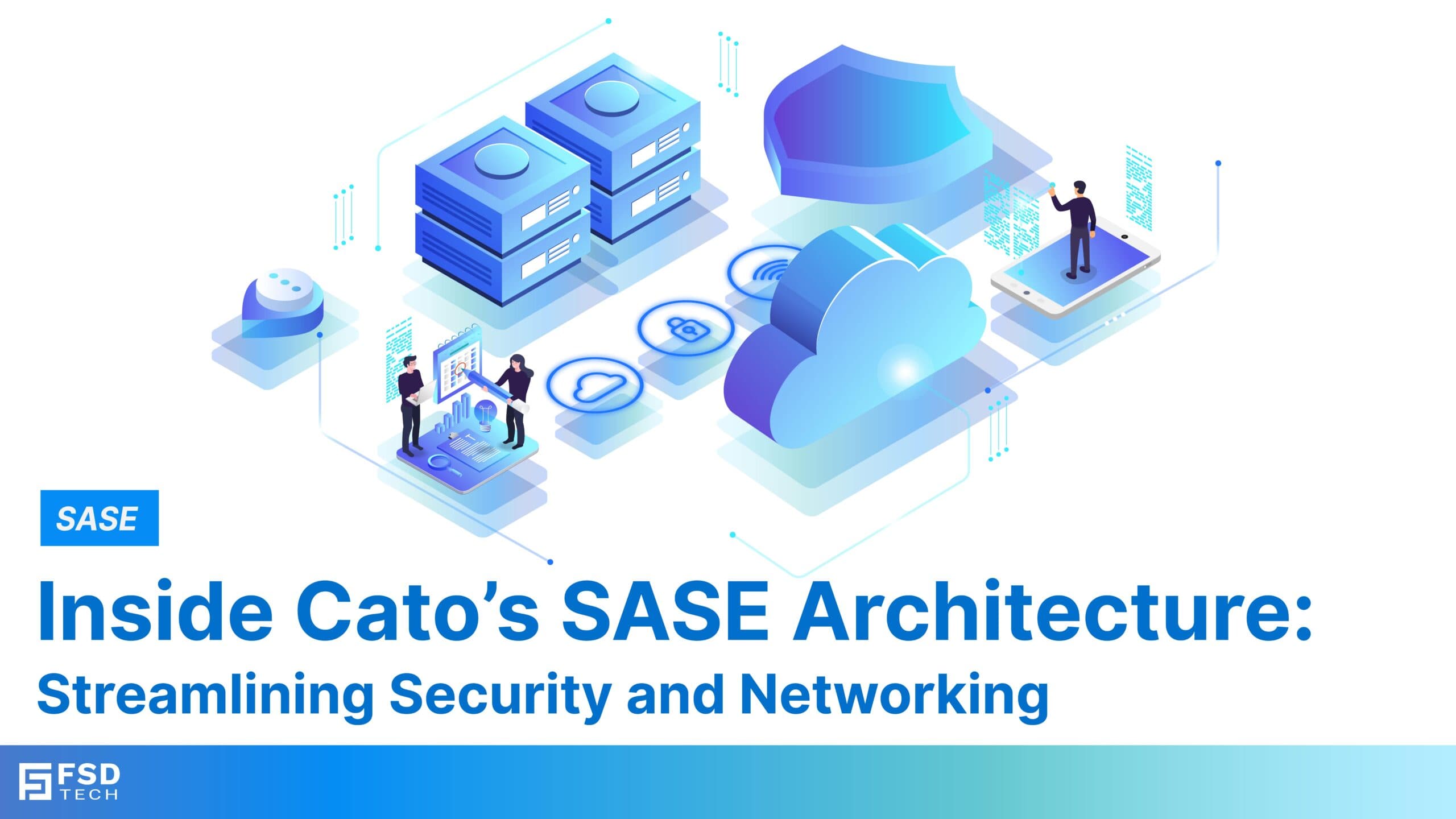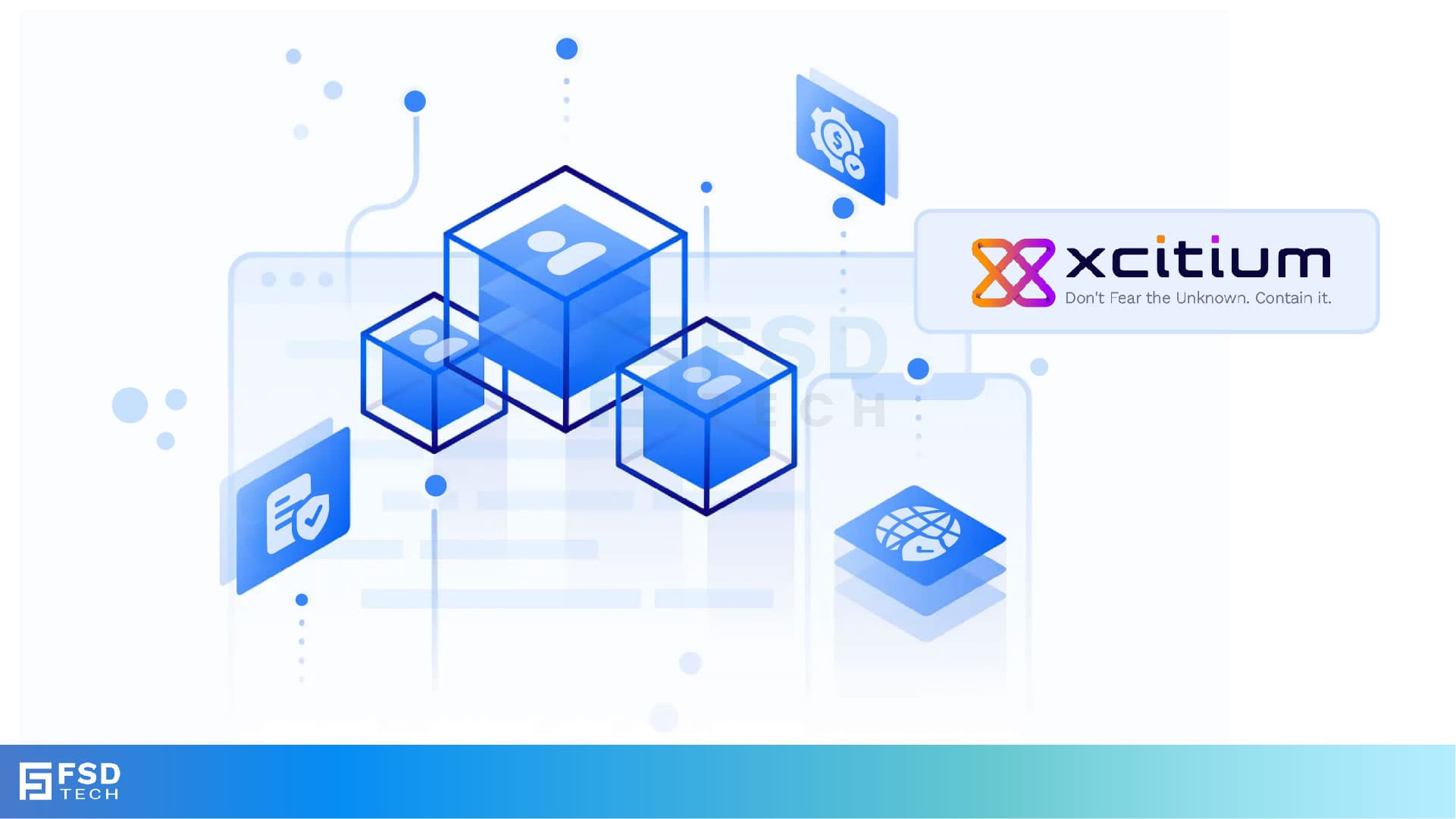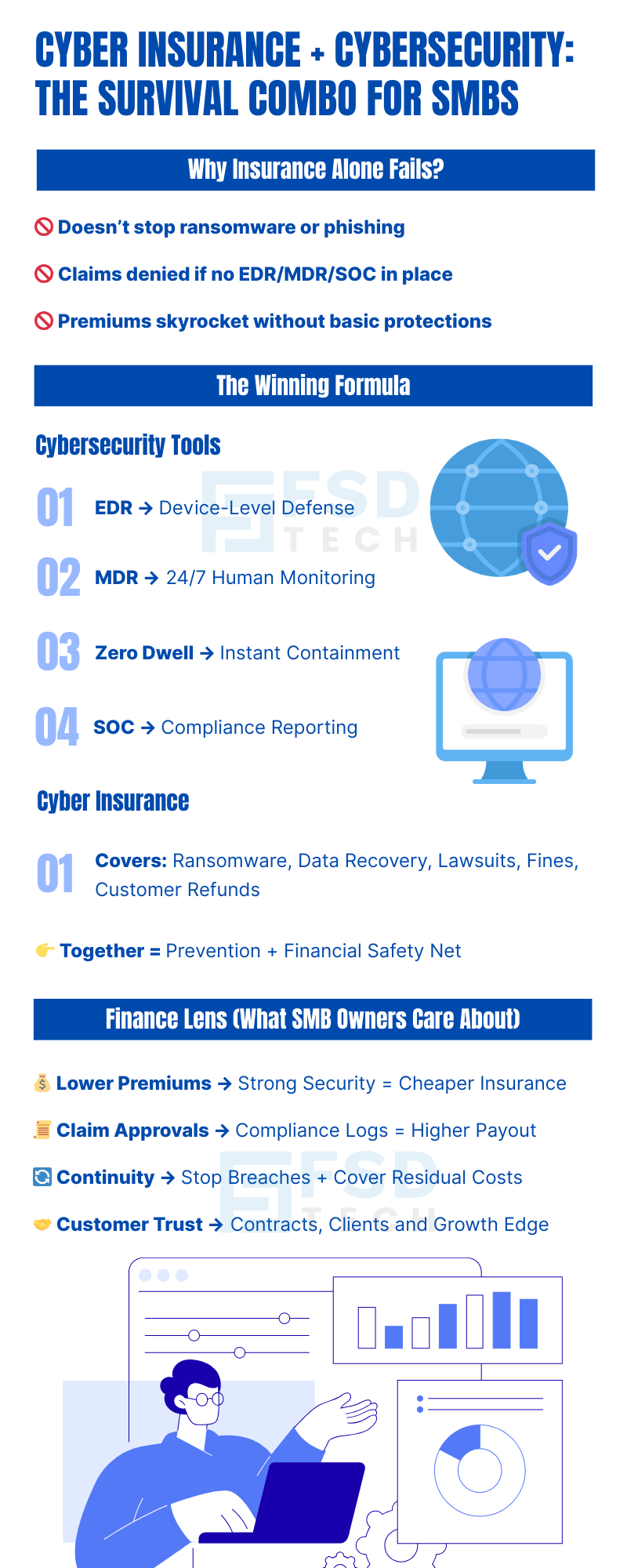
Inside Cato’s SASE Architecture: A Blueprint for Modern Security
🕓 January 26, 2025

Every business owner understands car insurance, health insurance, or property insurance. These insurances don’t stop accidents, sickness, or fires — but they reduce the financial impact when something bad happens.
Now imagine a cyberattack:
This is where cyber insurance comes in. But here’s the twist cyber insurance is not enough by itself.
Insurers now demand that SMBs also prove they have strong cybersecurity in place. Without it, your claims can be rejected.
So in today’s digital world:
Cyber insurance used to be considered a “luxury.” Today, it’s becoming a requirement because:
Example: A small e-commerce store in Kenya paid $50,000 in damages after a data breach. Cyber insurance covered part of the cost, saving the business from closure.
Here’s the part many SMBs don’t know:
Think of it this way: Car insurance won’t cover you if you drive recklessly without seatbelts or brakes. Similarly, cyber insurance won’t protect SMBs who ignore cybersecurity basics.
For SMBs in GCC & Africa, the winning formula is strong cybersecurity + cyber insurance.
Many insurers now ask SMBs to prove cybersecurity readiness before issuing a policy. This is where FSD-Tech comes in.
We help SMBs qualify for cyber insurance by providing:
With this, insurers see your SMB as low-risk → which means lower premiums and higher claim approval rates.
Want to know if your SMB is cyber insurance–ready? Fill out the form and our team will contact you.
A retail SMB in Dubai faced a ransomware attack that shut down their point-of-sale systems. Because they had cyber insurance but no real cybersecurity, the insurer refused to cover the full damages.
After joining hands with FSD-Tech:
Now, they not only run a secure retail business but also enjoy the financial safety net of cyber insurance.
✔ Lower Premiums: Strong cybersecurity = cheaper insurance.
✔ Claim Approvals: Insurers are more likely to honor claims.
✔ Business Continuity: Attacks are stopped before they escalate.
✔ Customer Confidence: Clients trust SMBs that have both protection + insurance.
✔ Growth Advantage: Compliant, insured SMBs win more contracts.
Cybersecurity is your first line of defense. Cyber insurance is your safety net.
Without one, the other is incomplete.
The smartest SMBs in GCC & Africa are now securing both — with FSD-Tech as their partner.
Book your SMB Cyber Risk & Insurance Readiness Assessment with FSD-Tech today. Book Now

Cyber insurance is like a safety net. It helps SMBs cover financial losses after a cyberattack — such as ransomware, data theft, or regulatory fines. But remember, insurance does not stop attacks; it only covers the cost after they happen.
SMBs in GCC & Africa are prime targets for hackers because they often lack advanced protection. Cyber insurance helps cover data recovery, legal fees, and customer compensation, making it a lifeline for SMB survival.
No. Cyber insurance is not enough. Insurers can deny claims if the SMB didn’t have proper cybersecurity measures in place (like EDR, MDR, and SOC monitoring). You need both cybersecurity + insurance for full protection.
Insurers want proof that your SMB is secure. With tools like EDR (Endpoint Detection & Response), MDR (Managed Detection & Response), and Zero Dwell containment, SMBs are seen as low risk. This means cheaper premiums and faster claim approvals.
Zero Dwell containment instantly blocks suspicious files before they cause damage. This reduces the chance of ransomware or data theft — making SMBs look more insurable to providers.
Most policies cover:
But coverage depends on the policy and insurer.
Yes. Just like car insurance is cheaper if you drive safely, cyber insurance is cheaper if you have cybersecurity tools like EDR, MDR, and SOC monitoring in place.
Claims are often rejected if SMBs:
This is why FSD-Tech’s SOC monitoring is critical.
Industries that handle sensitive customer data benefit the most:
FSD-Tech provides compliance assessments, cybersecurity tools (EDR, MDR, SOC, Zero Dwell), and reporting. This helps SMBs qualify for insurance, reduce premiums, and get claim approvals.
It’s not mandatory yet in most countries, but many clients, contracts, and regulators now require it. Soon, it will be as standard as car or health insurance.
Both are needed for survival.
Many insurers check if SMBs are compliant with ISO 27001, PCI DSS, GDPR, or local regulations. Non-compliance often leads to higher premiums or claim rejections.
Yes. With MSSP services from FSD-Tech, SMBs can get enterprise-grade protection at affordable monthly packages, making it cheaper than the cost of a single data breach.
The first step is a cyber risk assessment. FSD-Tech helps SMBs assess risks, implement cybersecurity, and prepare compliance reports to qualify for cyber insurance.

Anas is an Expert in Network and Security Infrastructure, With over seven years of industry experience, holding certifications Including CCIE- Enterprise, PCNSE, Cato SASE Expert, and Atera Certified Master. Anas provides his valuable insights and expertise to readers.
Share it with friends!
share your thoughts